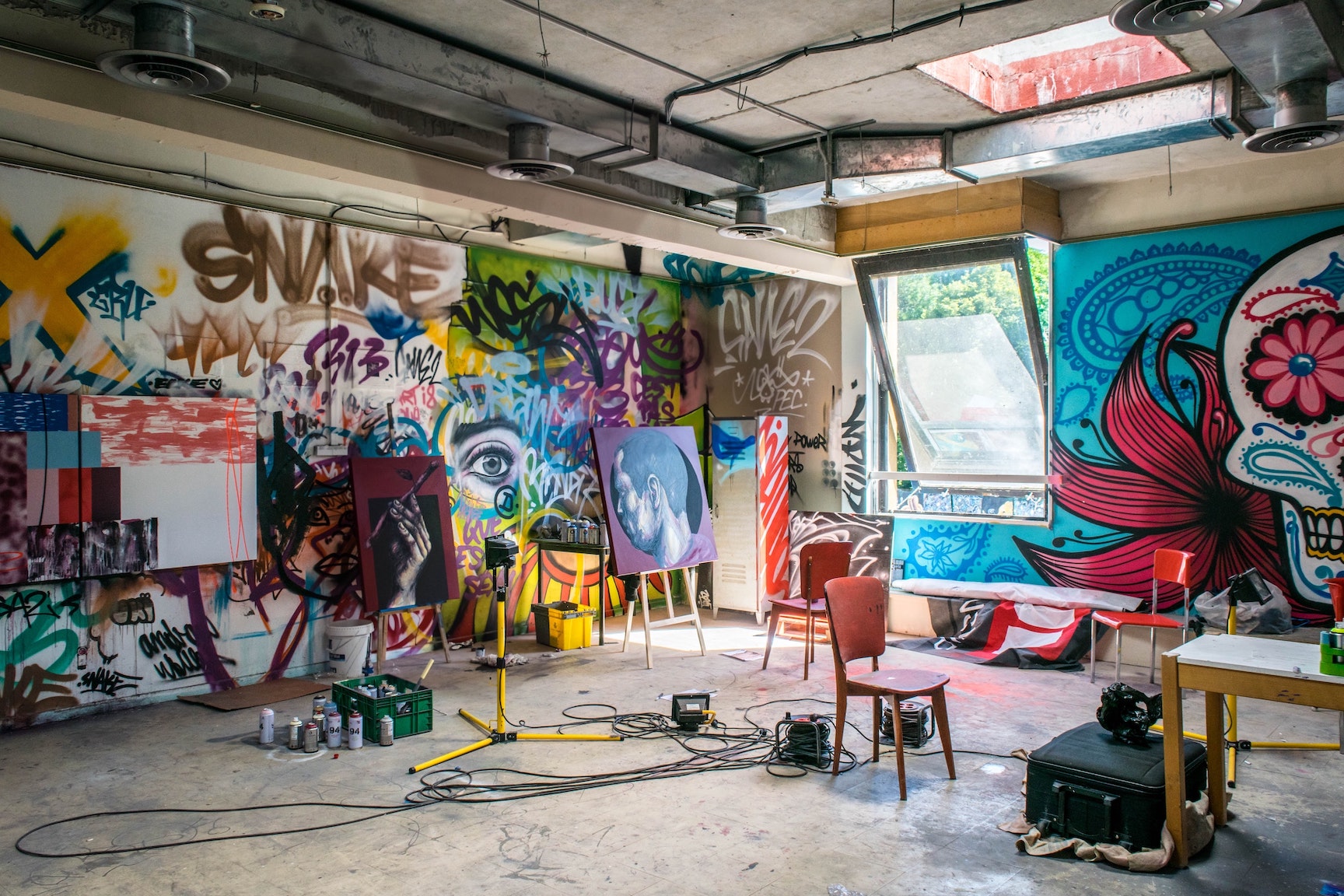An in-depth qualitative consultation with over 30 stakeholders identifies the most pressing challenges for the creative sector.
Dr Rhian Scott has published the Artists’ workspace consultation report. The report presents findings from an in-depth qualitative consultation with stakeholders on the challenges of affordable workspace provision for artists in London, and potential solutions to these.
The consultation was designed with support in kind from Creative Land Trust, as part of our efforts to engage with stakeholders from across London’s creative sector and beyond, to understand how we can best support sustainable growth and long-term security.
Gordon Seabright, CEO of Creative Land Trust said: “London’s high land values make it especially difficult to achieve affordable rents for artists. This report shows how constructively the arts sector is engaging with this challenge, and shows how studio providers, local authorities and landowners can all contribute. Creative Land Trust is pleased to be part of the solution, protecting affordable workspace in the very long term.”
In towns and cities across the UK, artists have been celebrated for adding to the vibrancy and draw of certain urban areas. However, at a time when culture and creativity are increasingly at the forefront of urban recovery efforts, it is being widely documented and evidenced that artists’ workspace is at risk (see GLA, 2014; 2018).
It’s estimated that 13,780 artists are on waiting lists and studio occupancy rates are at 95 percent (Mayor of London, 2018).
This report provides insights for property developers, local and regional government, studio providers, and Creative Land Trust to inform their strategies and best practice for addressing these challenges.
During the consultation, stakeholders were presented with six key challenges to address. Those to be found most pressing and impactful were:
- – the need to define affordability in the context of London,
- – the need to demonstrate the immediate economic and social value of artists’ studios and,
- – the need to build stronger links between studios and their local communities.


Inky Cuttlefish Studio, Gnome House. Photo credit: Mark Burton. (Top Right Image)
Other challenges discussed throughout the consultation included the need to bridge the gap between the market price of land in London and affordable rates for artists, the need to ensure that the short-term needs of artists’ workspace don’t overshadow the demand for long-term workspace, the need to build closer relations between Creative Land Trust, studio providers, and artists.
“Our sector needs more collaboration like this with academia to help us, as operators of workspace for artists, illustrate the multitude of benefits that we know are delivered, but sometimes struggle to evidence. Consultation can help develop the right language to unlock discussion with local authorities, investors, and policymakers in government so that we can ultimately deliver what we are all striving for, more truly-affordable workspace secured in the long-term.” William Austin, Founder of Southwark Studios.
Solutions seen as having the highest impact and being comparatively easy to implement in practice were those that involve studio providers leading the way in ensuring closer links are developed between studios and their local communities, such as designating a set portion of studios to artists living locally. Solutions involving local authorities’ making provisions for affordable studios in new developments and masterplan strategies were also felt to be of high impact and comparatively easy to implement.
Emerging from the consultation is the need for more mediators and gatekeepers to help broker relationships across the sector as currently responsibility for delivering affordable workspace is not distributed evenly across the sector. There was also a clear call for clearer definitions of what affordability means and how it is measured, as well as the duration of tenure that defines meanwhile studios, from short-term and long-term models.
Dr Rhian Scott is based at King’s College London on an ESRC Postdoctoral Fellowship managed by The London Interdisciplinary Social Science DTP (LISS-DTP). Her work examines affordable art studios as vital urban creative infrastructure, click here to find out more: https://www.kcl.ac.uk/people/rhian-scott.

